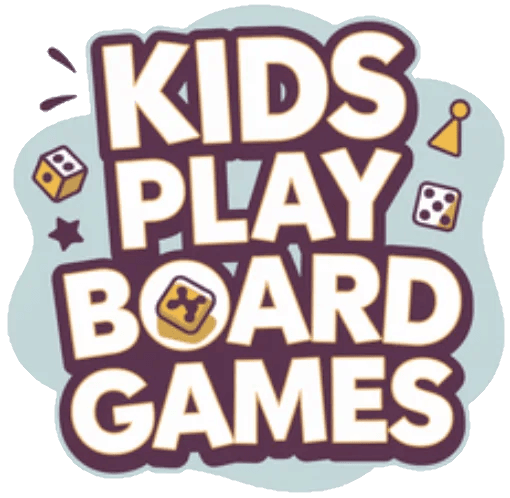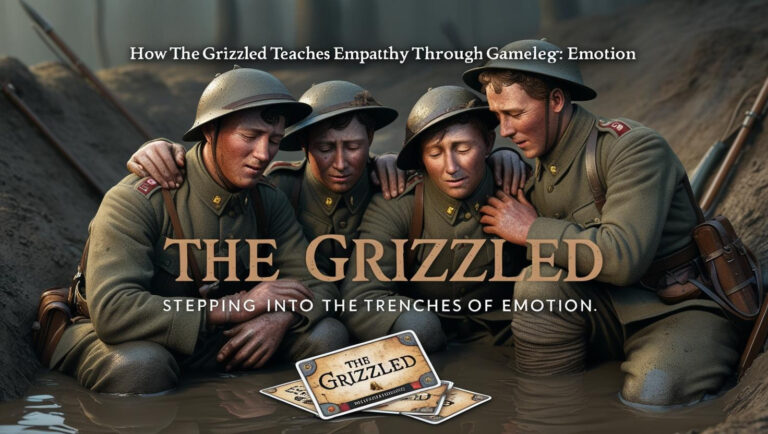Board Games: Cultivating Cooperation and Teamwork Beyond the Game Pieces

In the intricate dance of life, whether navigating the complexities of a team project at work, orchestrating a family event, or contributing to a community initiative, the ability to cooperate and work effectively within a team stands as a cornerstone of success.
These aren't innate talents; they are cultivated skills, honed through experience and understanding. But what if a powerful, engaging, and surprisingly insightful tool for developing these skills existed right under our noses? Board games, often relegated to the realm of mere entertainment, offer a rich landscape for understanding and practicing the fundamental principles of cooperation and teamwork.
This article delves into the heart of this concept, moving beyond specific game recommendations to explore the very mechanisms within board games that inherently teach and reinforce collaborative behaviors. We will uncover the underlying principles, dissect the key game mechanics, analyze the types of collaborative interactions they encourage, and ultimately understand how to leverage this knowledge for real-world learning.
The Underlying Principles: Why Board Games Facilitate Cooperation and Teamwork
At their core, many board games are meticulously designed microcosms of collaborative environments. They operate on several key principles that naturally encourage teamwork.
A significant number of board games are structured around a common objective that players must achieve together, fostering a sense of shared purpose and mutual investment in the outcome.
Interdependence and Reliance
The very nature of many game mechanics promotes interdependence and reliance. Individual players are often given limited resources, skills, or actions, making it impossible to succeed in isolation. They must actively seek and rely on the contributions of others to progress.
Simulated Consequences and Feedback
Board games offer simulated consequences and feedback in a safe space. The game's rules provide immediate feedback on whether cooperative strategies are effective or not, allowing players to learn from their successes and failures without real-world repercussions.
Structured Interaction
The structured interaction enforced by game rules also plays a crucial role. Games provide a clear framework for communication and negotiation, encouraging players to interact strategically within defined boundaries.
Engagement and Motivation
Finally, the inherent engagement and motivation that board games provide makes the learning process more effective. When players are invested and enjoying themselves, they are more likely to participate actively and internalize the lessons about cooperation.
Key Game Mechanics that Foster Cooperation and Teamwork
Several recurring game mechanics serve as building blocks for collaborative gameplay.
Shared resource management is a prominent example. Games that require players to pool resources, make collective decisions about their allocation, and prioritize the group's needs inherently teach cooperation.
Interdependent Actions and Abilities
Another powerful mechanic is interdependent actions and abilities. In these games, players have different strengths or roles that complement each other. Success hinges on effectively combining these diverse skills and acknowledging each player's unique contribution.
if you're fan of catan don't miss out on our in-depth guides :
Communication and Information Sharing
Many games necessitate communication and information sharing as a core mechanic. Players must openly discuss strategies, share crucial information, and coordinate their actions to overcome challenges collectively.
Joint Problem-Solving
Joint problem-solving is another common element. Games often present shared obstacles or puzzles that players must analyze together and devise collaborative solutions for.
Trading and Negotiation (Cooperative)
Even mechanics like trading and negotiation can be framed within a cooperative context, where players work together to ensure everyone benefits from exchanges, ultimately contributing to the shared objective.
Finally, the presence of shared victory and loss conditions is a powerful motivator for teamwork. When the group either succeeds or fails together, it reinforces the understanding that individual actions have collective consequences.
Types of Collaborative Interactions in Board Games
The mechanics described above give rise to various forms of collaborative interaction during gameplay.
Strategic Discussion and Planning
Strategic discussion and planning are often central, as players verbally discuss potential moves, analyze the game state, and develop collective strategies.
Negotiation and Compromise
Negotiation and compromise are frequently required, as players may have different ideas or priorities, necessitating finding mutually acceptable solutions.
Information Sharing and Transparency
Information sharing and transparency are crucial, encouraging players to openly communicate relevant information to facilitate informed decision-making as a group.
Support and Assistance
Players often engage in support and assistance, directly helping each other by providing resources, mitigating weaknesses, or taking on specific responsibilities to aid the team's progress.
Conflict Resolution and Consensus Building
When disagreements arise, games provide a framework for conflict resolution and consensus building, encouraging players to navigate differing opinions constructively to reach a shared agreement.
Adaptability and Flexibility
Furthermore, the dynamic nature of many board games often necessitates adaptability and flexibility, requiring players to adjust their strategies and roles in response to unexpected events or changes in the game state.
Leveraging Board Games for Learning: Practical Considerations
Understanding the principles and mechanics is only the first step. To effectively leverage board games for learning cooperation and teamwork, certain practical considerations are essential.
Choosing Games (Focus on Mechanics)
When choosing games for this purpose, focus on the presence and prominence of mechanics that inherently encourage collaboration, such as shared goals, interdependence, and the necessity for communication, rather than being swayed by specific titles.
Setting the Environment for Collaboration
Setting the environment is also crucial. Foster a positive, supportive, and non-competitive atmosphere where players feel comfortable sharing ideas and making mistakes.
Facilitating Communication and Discussion
Actively facilitating communication and discussion is key. Encourage players to verbalize their strategies, explain their reasoning, and actively listen to the perspectives of others.
Focusing on the Process, Not Just the Outcome
Shift the focus from individual achievement to the process, not just the outcome. Emphasize the collaborative effort and the learning journey, rather than solely focusing on winning or losing.
Post-Game Reflection and Debriefing
After the game, dedicate time for post-game reflection and debriefing. Discuss the teamwork dynamics observed, the challenges faced, the strategies employed, and the lessons learned.
Observing and Providing Feedback
If facilitating, consider observing and providing feedback on the group's collaborative efforts, highlighting both successes and areas for improvement in their teamwork.
The Transferable Skills: Benefits Beyond the Game
The benefits of learning cooperation and teamwork through board games extend far beyond the game table.
Enhanced Communication Skills
The enhanced communication skills honed during gameplay, including active listening, clear articulation, and effective information sharing, translate directly to improved communication in personal and professional settings.
Improved Problem-Solving Abilities
The practice of collaborative problem-solving equips individuals with valuable skills for tackling real-world challenges in a team environment.
Increased Empathy and Perspective-Taking
Working together towards shared goals fosters increased empathy and perspective-taking, allowing individuals to better understand and appreciate different viewpoints.
Development of Leadership and Followership Skills
Engaging in different roles within cooperative games can contribute to the development of both leadership and followership skills, as individuals learn when to take initiative and when to support others' decisions.
Strengthened Relationships and Trust
Ultimately, the shared experiences and successful collaboration fostered by board games can lead to strengthened relationships and trust among individuals, building a foundation for more effective teamwork in all aspects of life.
Conclusion
Board games, when viewed through the lens of their underlying principles and mechanics, reveal themselves as powerful tools for understanding and developing crucial cooperation and teamwork skills. By focusing on the design elements that encourage collaboration, rather than specific game titles, we can appreciate the broader educational potential of this engaging medium. Learning to work effectively with others is a cornerstone of success in an interconnected world, and the lessons learned through collaborative gameplay offer valuable insights and practical skills that extend far beyond the game pieces, enriching our interactions and strengthening our ability to achieve shared goals in all areas of our lives.






